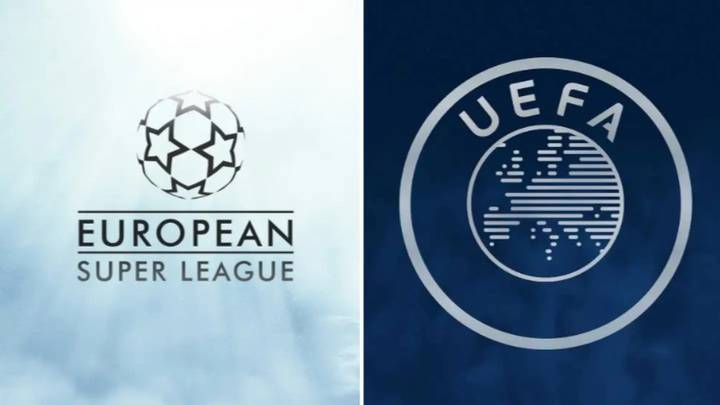The European Super League secures a significant legal victory as the EU Court of Justice rules in its favor, overturning challenges posed by FIFA and UEFA. Explore the latest developments in this landmark case shaping the future of football competitions.

Due to the repercussions of the coronavirus pandemic, 10 teams, including six from the Premier League, revealed intentions to establish a new division, aiming to ensure their financial stability.
Nevertheless, the English clubs – Manchester City, Liverpool, Arsenal, Manchester United, Tottenham Hotspur, and Chelsea – along with AC Milan, swiftly withdrew. In contrast, Real Madrid, Barcelona, and Juventus remained steadfast in their commitment to proceed with the contractually agreed plans.
In the wake of the pandemic, ten teams, including six from the Premier League, announced plans for a new division to secure financial stability. However, Manchester City, Liverpool, Arsenal, Manchester United, Tottenham Hotspur, and Chelsea, along with AC Milan, swiftly withdrew, while Real Madrid, Barcelona, and Juventus remained committed.
FIFA and UEFA, aiming to protect their competitions, threatened sanctions, prompting the case to reach the EU Court of Justice led by A22 Sports. Fifteen judges deliberated, seeking to prevent sanctions against Real Madrid, Barcelona, and Juventus in the event of a European Super League. Thursday’s ruling deemed any attempt to ban these clubs from domestic leagues and major tournaments as ‘unlawful.’
The fallout continued as FIFA and UEFA, in an effort to preserve their competitions, threatened sanctions against the European Super League. A22 Sports took the case to the EU Court of Justice, involving 15 judges, seeking protection from potential repercussions. The Thursday ruling emphatically declared any endeavor to ban Real Madrid, Barcelona, and Juventus from domestic leagues like La Liga and Serie A, as well as prestigious tournaments such as the Champions League, as legally impermissible.
A statement read:
“The FIFA and UEFA rules making any interclub football project subject to their prior approval, such as the Super League, and prohibiting players from playing in those competitions, are unlawful.”
Furthermore, it ruled:
“However, the powers of Fifa and Uefa are not subject to any such criteria. Fifa and Uefa are, therefore, abusing a dominant position.
“Moreover, given their arbitrary nature, their rules on approval, control and sanctions must be held to be unjustified restrictions on the freedom to provide services.
“That does not mean that a competition such as the Super League project must necessarily be approved. The Court does not rule on that specific project in its judgment.”
In response to the verdict going in their favour, A22 Sports CEO Bernd Reichart claimed that football had now become “free” ahead of the aforementioned three clubs being expected to lead the efforts to form a rival league.
He stated: “We have won the right to compete. The UEFA-monopoly is over. Football is free. Clubs are now free from the threat of sanction and free to determine their own futures.
“For fans: We propose free viewing of all Super League matches. For clubs: Revenues and solidarity spending will be guaranteed.”
More recently, it was suggested that a ESL 2.0 would be formed, the format seeing as many as 80 teams involved that would include a number of different divisions.





